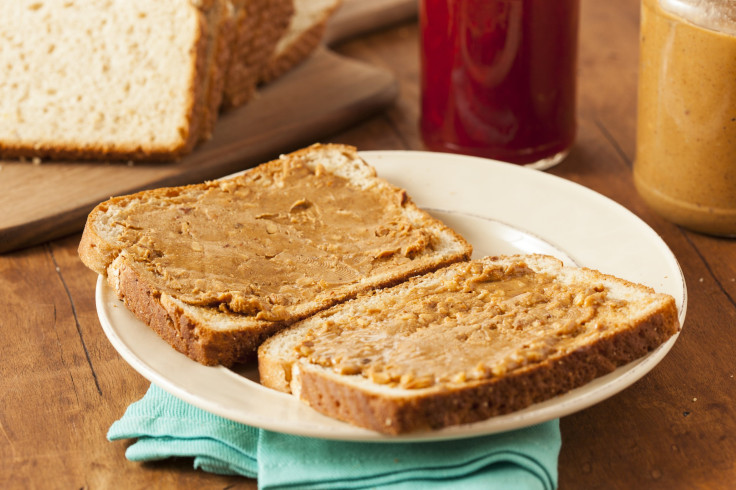Oral Immunotherapy Combination Of Peanut Protein, Probiotics May Cure Peanut Allergies

In the past several decades, the number of children with peanut allergies has tripled from 0.4 percent in 1997 to 1.4 percent in 2010, according to a Mount Sinai Hospital study. While doctors aren’t certain what caused the increase, it has led schools and airlines to ban peanut products out of fear of causing severe reactions.
Now, a new study from Murdoch Children’s Research Institute outlines a new treatment that could possibly cure children of their peanut allergies. The researchers gave 60 peanut-allergic children a dose of a probiotic known as Lactobacillus rhamnosus (around 20 kilograms of yogurt) mixed with a peanut protein, and gradually increased the daily amount over the course of 18 months in order to test whether their tolerance would gradually increase. Over 80 percent of the children who received the treatment were no longer severely allergic to peanuts by the end of the 18 months, when compared to four percent of the placebo group.
For the study, "the combined delivery of probiotic and oral immunotherapy was a safe and effective treatment for peanut allergy; however, it is important to point out that this treatment must be given only under close medical supervision as we are giving peanut to children who are allergic to peanut, and children did have allergic reactions,” said Professor Mimi Tang, an author of the study, in the press release. “Nevertheless, the likelihood of success was high — if nine children were given probiotic and peanut therapy, seven would benefit.”
Immunotherapy, more simply known as allergy shots, is a long-term treatment that helps people develop a higher tolerance to allergens, and decreases symptoms of allergic rhinitis, allergic asthma, or conjunctivitis, according to the American Academy of Allergy, Asthma, and Immunology (AAAAI). Allergy shots are similar to vaccines: The body responds to each injection by building up its immunity to the allergen, similar to how vaccines help the body create defenses against viruses.
Previous research has found that oral immunotherapy — meaning doses of the allergen taken by mouth, not a jab — proved useful in decreasing symptoms of peanut allergy in children. Also known as desensitization, the treatment is still being studied. Until it's used more widely, most people with peanut allergies should still avoid peanuts at all costs, and carry an “Epi-pen,” or a shot of epinephrine, wherever they go to prevent anaphylaxis. Less severe allergy cases involve Benadryl as the only treatment option.
The new study’s results, however, are promising. Eighty-two percent of the children treated with the probiotic mixture were able to include peanuts in their diet after the trial, compared to 3.6 percent of the placebo group. “It appears that we have been able to modify the allergic response to peanut such that the immune system produces protective responses rather than a harmful response to the peanut protein,” Tang said.
The authors believe that finding a cure for peanut allergies is crucial, since it’s one of the most common and severe allergies — it can also last a lifetime. Out of the 15 million Americans who have some form of food allergy, peanut, milk, and shellfish allergies are the most prevalent.
“Many of the children and families believe it has changed their lives, they’re very happy, they feel relieved,” Tang told The Guardian. “These findings provide the first vital step toward developing a cure for peanut allergy and possibly other food allergies.”
Source: Tang M, Ponsonby A, Orsini F, Tey D, Robinson M, Su E. Administration of a probiotic with peanut oral immunotherapy: A randomized trial. The Journal of Allergy and Clinical Immunology. 2015.



























